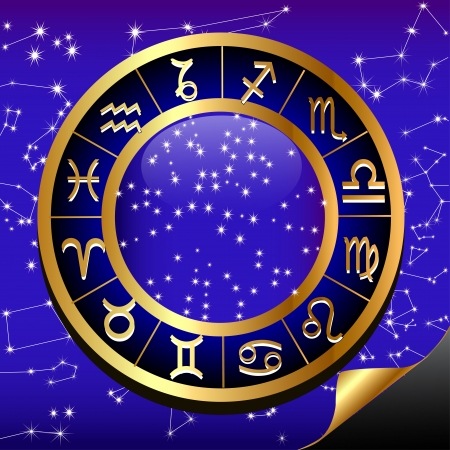Introduction: The Indian Way of Living
India, a land of vibrant diversity and deep-rooted traditions, is known for its unique approach to living a balanced life. From the sacred rivers of Varanasi to the bustling streets of Mumbai, Indian lifestyle values are woven with threads of spirituality, family bonds, and holistic well-being. Fasting is not just a religious ritual but a time-honoured practice that shapes daily routines and seasonal rhythms. The influence of zodiac signs—locally called Rashis—guides personal choices, relationships, and even major life decisions. In recent years, mental health has become an important topic in Indian society, sparking conversations about self-care and emotional resilience within families and communities. This article explores how fasting, astrology, and mental health are intricately connected in the Indian context, offering practical tips for finding harmony amidst modern challenges while staying rooted in tradition.
Fasting in India: Traditions, Beliefs & Modern Practices
India’s vibrant spiritual landscape is deeply woven with the practice of fasting. For centuries, fasting has been an essential part of Indian households—not just as a religious ritual but as a holistic approach to mind-body harmony. From Navratri to Ramadan and Ekadashi, each tradition reflects unique beliefs and brings families together for physical cleansing and mental clarity.
Major Indian Fasting Traditions
| Festival/Fast | Religious Significance | Common Practices | Mental & Physical Impact |
|---|---|---|---|
| Navratri | Hindu—honoring Goddess Durga | 9 days of selective foods, prayer, meditation | Detoxifies body, enhances focus, family bonding |
| Ramadan | Islam—commemorating Quran revelation | Dawn-to-dusk fasting, nightly prayers (Taraweeh) | Self-control, empathy for less fortunate, spiritual growth |
| Ekadashi | Hindu—dedicated to Lord Vishnu | No grains or beans; only fruits/milk consumed twice monthly | Cleanses digestive system, calms the mind |
| Karthika Deepam Fasting | South Indian Hindu—worship of Lord Shiva/Murugan | Oil lamp lighting, abstaining from non-veg food and onion/garlic | Pious atmosphere at home, emotional positivity |
The Deeper Meaning: Beyond Food Restrictions
In Indian culture, fasting is not merely about abstaining from food. It is a conscious choice to purify thoughts, strengthen willpower, and cultivate gratitude—qualities cherished by all zodiac signs. When practiced mindfully, fasting supports balance between one’s inner emotional world and outer social connections. This harmony often sets the stage for romantic compatibility and healthy relationships within Indian families.
Modern Adaptations in Urban India
Younger generations are finding innovative ways to blend traditional fasting with modern lifestyles. Many now choose intermittent fasting or detox diets during festival times instead of strict rituals, focusing on health benefits while still honoring their roots. Couples and singles alike use these periods for digital detoxes, mindful activities, or even partner yoga—strengthening both mental health and love bonds.
Key Takeaway:
Whether you’re following your astrological guidance or seeking deeper connection with your partner during fasts, embracing both tradition and adaptability can help you achieve true mind-body equilibrium in your Indian lifestyle.

3. Zodiac Signs (Rashis) and Indian Wellness Tips
How Zodiac Beliefs Shape Everyday Habits in India
In Indian culture, zodiac signs—known as Rashis—play a significant role in shaping daily routines, health practices, and personal decisions. Many people consult their horoscopes for guidance on auspicious timings (muhurats), dietary habits, and even the best days to start fasting or important activities. For example, Cancerians may be advised to avoid spicy foods during certain moon phases, while Virgos are encouraged to practice yoga for grounding energy. These habits blend ancient wisdom with modern lifestyle choices, helping individuals align their mind, body, and spirit according to cosmic influences.
Compatibility & Relationships: Rashis in Love and Family Life
Relationship compatibility is deeply rooted in Indian astrology. Families often consult astrologers before marriages to match Rashis for long-term happiness and harmony. For instance, a Leo and Sagittarius pair is considered highly compatible due to their shared enthusiasm and positivity, while a Taurus-Virgo match values stability and mutual support. These astrological insights not only influence romantic relationships but also guide friendships and professional partnerships, offering practical ways to create balance and understanding in everyday interactions.
Wellness Tips Based on Your Rashi
Aries (Mesh):
Engage in energetic workouts like running or dance to channel your dynamic energy. Mindful breathing can help manage impulsiveness.
Cancer (Karka):
Prioritise emotional self-care through journaling or meditation. Fasting on Mondays (Somvar vrat) is said to bring peace of mind.
Libra (Tula):
Maintain social connections and try balancing activities like yoga or group prayers (satsang). Avoid overindulgence by following a sattvic diet.
Practical Takeaway:
Incorporate simple wellness rituals based on your Rashi—like specific fasts, preferred foods, or daily affirmations—to support mental health and harmonious relationships. Whether you believe deeply in astrology or see it as a cultural tradition, these practices offer time-tested ways to enhance wellbeing in the Indian context.
4. Mental Health: Breaking Stigmas and Seeking Balance
In India, mental health has long been surrounded by stigma, with traditional beliefs often emphasizing endurance and silence over open conversations. Many families consider mental health issues as taboo or associate them with spiritual weaknesses rather than medical conditions. However, in recent years, there has been a gradual shift towards more open and positive attitudes, especially among the youth and urban communities. The Indian zodiac signs (Rashis) also offer unique insights into emotional well-being, encouraging personalized self-care routines that resonate with both traditional values and contemporary needs.
Traditional vs. Contemporary Attitudes
| Aspect | Traditional Approach | Contemporary Shift |
|---|---|---|
| Understanding of Mental Health | Viewed as a personal weakness or karma; rarely discussed openly | Recognized as a medical issue; increasing awareness and acceptance |
| Support Systems | Relies on family elders, religious leaders, or local healers | Access to therapists, counselors, support groups, and helplines |
| Coping Strategies | Puja, fasting, meditation, yoga | Mental health apps, therapy sessions, mindfulness training |
Culturally Sensitive Self-Care Practices
- Meditation & Yoga: Practiced for centuries in India, these techniques help balance mind and body. Tailor your practice based on your Rashi for deeper alignment.
- Ayurvedic Lifestyle: Incorporate dosha-specific diets and rituals to promote holistic wellness. Many believe that fasting according to astrological guidance can enhance mental clarity.
- Community Support: Participate in satsangs or group prayers—these foster a sense of belonging and reduce isolation.
Local Resources for Mental Wellness
- Mann Talks (manntalks.org): Offers free counseling in multiple regional languages.
- Samaritans Mumbai: 24×7 helpline for emotional support (+91 8422984528 / 29 / 30).
- NIMHANS Bengaluru: Leading institute providing psychiatric support and education.
Zodiac-Inspired Self-Care Tips
| Zodiac Sign (Rashi) | Recommended Practice |
|---|---|
| Mesha (Aries) | Active meditation like walking or Surya Namaskar during Navratri fasts |
| Karka (Cancer) | Sattvic diet on Ekadashi; moon-watching meditation for emotional calmness |
| Tula (Libra) | Balance social interactions with solo journaling during Purnima fasts |
The journey toward better mental health in India is ongoing. Embracing both ancient wisdom and modern resources while honoring individual zodiac influences can help break stigmas and create a balanced lifestyle that nurtures the heart and mind.
5. Finding Harmony: Blending Rituals and Modern Wellness
Embracing the Old and New in Daily Life
For many Indians, life is a beautiful mix of ancient rituals, spiritual beliefs, and contemporary aspirations. Whether you are observing Navratri fasts, following your astrologer’s advice on auspicious timings, or seeking stress relief through yoga and mindfulness apps, it’s possible to find balance without feeling overwhelmed. Harmony comes from respecting tradition while allowing space for modern wellness practices that support your mind and body.
Practical Tips for a Holistic Indian Lifestyle
1. Sync Your Fasting with Your Work & Social Calendar
Plan your fasting days ahead. If Ekadashi or Ramadan falls on a busy office day, prepare simple sattvic meals in advance or carry light snacks like fruits, makhana, or roasted chana. Don’t hesitate to communicate with colleagues about your fasting—most Indian workplaces are understanding.
2. Adapt Astrological Guidance to Your Routine
If your zodiac sign suggests specific activities (like meditation on Mondays for Cancerians), integrate them into your morning or evening rituals instead of treating them as strict rules. Small steps—lighting a diya after work or reciting a mantra before bed—can be meaningful yet manageable.
3. Prioritise Mental Health Alongside Spiritual Practices
While religious rituals bring peace, mental health needs attention too. Use digital tools like Calm or Headspace for guided meditations in Hindi or English. Join community satsangs or bhajan groups online for social connection if you live away from family.
4. Customise Your Wellness Approach
No single routine fits all! Blend Ayurveda with modern medicine if needed. Consult local nutritionists who understand Indian dietary patterns before starting any new diet during fasting. Listen to your body’s signals; take rest if you feel drained during fasts.
Cultivating Love & Support in Relationships
Share your spiritual journey with loved ones—whether it’s fasting together during Karva Chauth or supporting each other’s self-care routines based on zodiac insights. Respect differences; not everyone follows the same path, but mutual encouragement strengthens bonds and creates a nurturing home environment.
The Takeaway: Balance Is Personal
The art of blending fasting, astrology, and wellness lies in customising these elements for your unique Indian lifestyle. Stay flexible, honour your roots, and use modern resources wisely to achieve true harmony—mind, body, and soul.
6. Concluding Thoughts: Your Personalized Path to Balance
India’s vibrant traditions, astrological wisdom, and mindfulness practices offer a beautiful palette for holistic living. Embracing fasting as per your zodiac sign, honouring your family’s rituals during auspicious days like Ekadashi or Navratri, and tuning into your mental well-being can create a truly harmonious life. Remember, each individual is unique—what works for one may not suit another. Listen to your inner voice, consult your elders or astrologer, and adapt practices that align with both your personal needs and cultural roots.
Let your journey be guided by love—for yourself, for your heritage, and for the people you care about. If you’re a Capricorn seeking discipline through weekly fasts, or a Pisces finding peace in meditation and sattvic food on special days, let these choices reflect your true self.
Integrate Tradition with Modern Mindfulness
Blending ancient Indian wisdom with modern self-care isn’t about following rules blindly; it’s about forging meaningful connections—with culture, cosmos, and community. Allow astrology to inspire self-awareness, let fasting deepen gratitude, and use mindfulness to stay grounded in today’s fast-paced world.
Your Indian Identity Is Your Strength
Whether you’re in bustling Mumbai or a quiet village in Kerala, draw strength from India’s diversity. Celebrate festivals with loved ones, discuss horoscope matches with friends over chai, and share mental health tips on WhatsApp groups. These small acts nurture a sense of belonging—and love—that is distinctly desi.
Embrace Your Unique Path
No matter where you are on this journey, remember: balance is personal. Honour tradition, respect the stars, and care for your mind and heart in ways that spark joy for you. In doing so, you’ll create a lifestyle that’s not just healthy but also deeply meaningful—rooted in love for yourself and the rich cultural tapestry of India.

